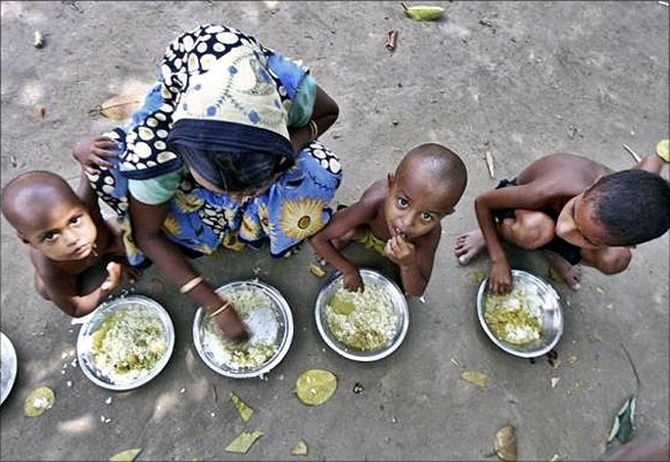In what could come as a piece of good news, hunger in India — as measured by the Prevalence of Undernourishment (PoU) by the United Nation’s Food and Agriculture Organisation (FAO) — has come down from 16.6 per cent of the population in the 2020-2022 to 13.7 per cent in 2021-23, the latest report on the State of Food Security and Nutrition in the World (SOFI 2024) showed.

This means that around 39.3 million people have come out of undernourishment between the two periods, NITI Aayog member Ramesh Chand said on Tuesday.
Chand was discussing the report and its findings with a select group of journalists on the sidelines of a press meet held to announce the 32nd International Conference of Agricultural Economists to be held in Delhi from August 2.
The conference, which will see participation of over 700 delegates from across the world, is being held after almost 60 years and will discuss all topical issues related to agriculture, including the rising subsidy burden, climate change, and growing nutritional challenges.
Chand, meanwhile, said that the latest findings of the UN-FAO report, which is based on updated data furnished by the central government, also put to rest the controversy on whether hunger as measured by the prevalence of malnourishment has risen in India post-Covid.
Back in October last year, the central government had roundly criticized the UN-FAO’s SOFI 2023 that showed that PoU in India has increased post-Covid from 14 per cent in 2017-19 to 16.6 per cent of the population in 2020-22.
The government had then said that the FAO estimate is based on the “Food Insecurity Experience Scale (FIES)” survey conducted through Gallop World Poll, which is nothing but an “opinion poll” based on eight questions with a sample size of “3,000 respondents”.
“The data collected from a minuscule sample for a country of India’s size through FIES has been used to compute PoU value for India, which is not only wrong and unethical, it also reeks of obvious bias,” an official statement had said.
The statement had further said that due to these flaws, FAO was asked to not use such estimates based on FIES survey data.
And, a technical group constituted for this purpose has suggested changes in the existing FIES module, including questionnaire, sample design, and sample size.
“However, despite the pilot survey being in process, continued use of FAO’s FIES-based PoU estimate is regrettable,” the statement had added, criticizing the findings then.
Meanwhile, SOFI 2024 also said that after rising sharply from 2019 to 2021, global hunger, measured by PoU, has persisted at nearly the same level for three consecutive years, still affecting 9.1 per cent of the population in 2023 compared with 7.5 per cent in 2019.












 © 2025
© 2025